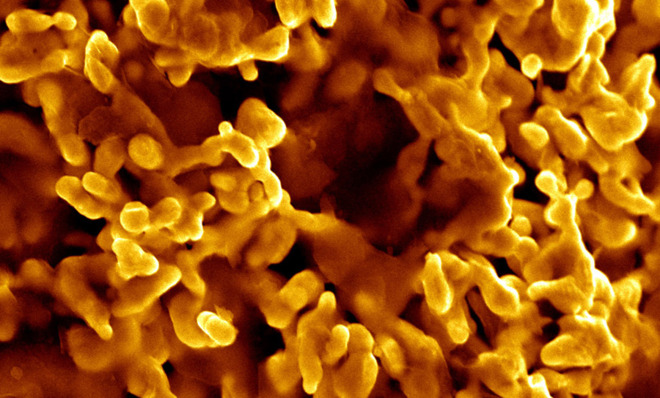The tiniest capitalists: How microbes replicate the market
Microscopic critters engage in commerce much like we do

A free daily email with the biggest news stories of the day – and the best features from TheWeek.com
You are now subscribed
Your newsletter sign-up was successful
Monkeys groom each other in exchange for food and sex. "Cleaner fish" pick parasites off their clients and get a meal for their grooming services. Without cash or credit cards, these animals and many more take part in what scientists call "biological markets," exchanging goods and services with other fuzzy, scaled, or feathered traders.
While they're harder to see, microbes also cooperate and trade with one another and other organisms. "Every species on Earth is involved directly or indirectly in one or more microbial partnerships," writes evolutionary biologist Toby Kiers. "Some are involved in hundreds." Kiers and an international team of researchers wondered if these relationships and behaviors could be framed in economic terms, too.
After diving into the research on microbial interactions, the researchers concluded that not only are microbes economic actors, but that some of their behaviors and strategies are similar to ours.
The Week
Escape your echo chamber. Get the facts behind the news, plus analysis from multiple perspectives.

Sign up for The Week's Free Newsletters
From our morning news briefing to a weekly Good News Newsletter, get the best of The Week delivered directly to your inbox.
From our morning news briefing to a weekly Good News Newsletter, get the best of The Week delivered directly to your inbox.
Comparison shopping
Much how you'll ditch a coffee shop if it has lousy customer service, microbes will take their business elsewhere if they think they're getting a bad deal. In some studies by Kiers' team, microbial fungi that trade nutrients with host plants were observed to "comparison shop" among different plants, and trade more frequently with ones that doled out more or better resources.
Buying local
Spending your money close to home helps the local economy, which means the benefits can come back around. Bacteria will also band together when they're neighbors. When Salmonella and E. coli bacteria were grown together in a study and prevented from moving freely, they cooperated. One promoted the other's growth by secreting amino acids, and the other returned the favor by processing the waste they had generated. When the two bacteria were raised in a less structured, liquid environment and could move around more, these local partnerships didn't develop.
A free daily email with the biggest news stories of the day – and the best features from TheWeek.com
Diversifying
It's great if you can act, better if you can sing and dance, too. Likewise, bacteria will offer a wider variety of goods and services to keep themselves in business in changing conditions. Some bacteria have symbiotic relationships with fungus-farming ants, and produce antibiotics that keep parasites out of their fungal gardens. The bacteria will also protect the ants themselves against other kinds of infectious fungi, giving the ants an incentive to keep them around even if the gardens aren't threatened.
Saving for a rainy day
Some birds and squirrels hoard food for when they really need it. Some humans hang on to toys until they're high-priced collectors' items. Likewise, some microbial fungi store nutrients away until the soil is poor, which enables them to get more in exchange from their host plants.
Eliminating the competition
If you're competing for resources, sometimes it's easier to drive away competitors than go toe-to-toe with them. When bacteria are competing with closely related strains for the same resources, they've been known to produce bacteriocins — toxins that target and kill other bacteria, clearing the way for the poisoner to monopolize the goods.
Kiers and her team think that microbes are a great fit for the biological market framework, which could generate a slew of new experimental questions and research about the organisms. Furthermore, the ease of manipulating microbes makes them useful for testing biological market questions that can't be answered with other species.
There might even be practical applications for what they've learned about these microscopic economies. For example, we could possibly manipulate the market conditions between microbes and plants to get more nutrients for crops at a lower cost to the plant and the farmer.
-
 The Olympic timekeepers keeping the Games on track
The Olympic timekeepers keeping the Games on trackUnder the Radar Swiss watchmaking giant Omega has been at the finish line of every Olympic Games for nearly 100 years
-
 Will increasing tensions with Iran boil over into war?
Will increasing tensions with Iran boil over into war?Today’s Big Question President Donald Trump has recently been threatening the country
-
 Corruption: The spy sheikh and the president
Corruption: The spy sheikh and the presidentFeature Trump is at the center of another scandal